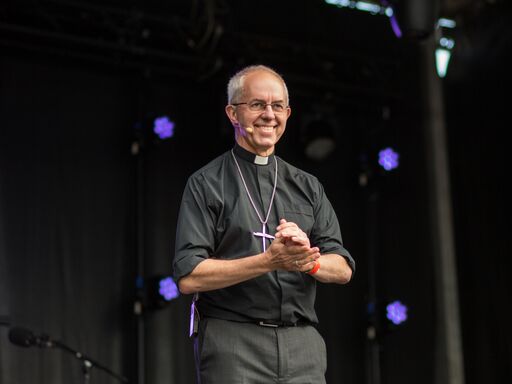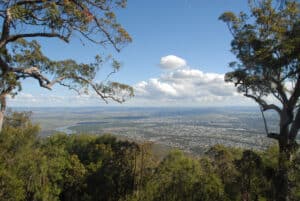
Jenan Taylor
13 July 2022
At least eight Australian Anglican bishops have declined to attend the upcoming Lambeth Conference in the United Kingdom.
Bishops from Sydney, Tasmania, Bathurst, Armidale and North West Australia dioceses, have variously cited costs and views on human sexuality among the reasons they will not be going to the conference.
More than 650 bishops from across the world are expected at the Lambeth Conference, which usually takes place every 10 years.
It was cancelled in 2018 with the organisers saying more work was needed on “the structure of the Anglican Communion and the need for a continued journey towards a postcolonial model of global church.”.
In 2020 it was postponed because of the COVID pandemic.
A Sydney diocese spokesperson said Archbishop Kanishka Raffel had written to the Archbishop of Canterbury Justin Welby, confirming that the Sydney bishops would not be attending.
“Sydney Bishops have not attended the Lambeth Conference since 1998, due to the presence of some who have flouted the resolutions made at that meeting, and the absence of some who have upheld them,” the spokesperson said.
It comes as organisers prepare for the opening of the Lambeth conference, despite a boycott from the Anglican primates of Nigeria, Rwanda and Uganda.
The primates issued an open letter to Archbishop Welby saying they would boycott the conference because the Church continued to fail to address questions of revisionism in line with the rise of secular culture in the Church.
In a separate statement the primates also said they represented almost half of the world’s Anglicans.
Read more: Synod reaches ‘difficult conversation’ of same-sex marriage | General Synod Day 2
The Diocese of Tasmania has also told The Melbourne Anglican that Bishop Richard Condie would not be attending but gave no reason.
The North West Australia Diocese said that because there had been no replacement since Bishop Gary Nelson’s retirement, they would not have a representative either.
But the Bathurst diocese’s Bishop Mark Calder said cost considerations were why he was unable to attend.
Tickets alone are an estimated $8500 per person at current exchange rates.
However, Bishop Calder said he wanted to see the Church concentrate on making spreading the good news of Jesus the main item on the program.
He said although climate change and other matters on the agenda were important, the Church’s call should be Jesus’s call, which is to go into all the world and make disciples.
“If we made that the central focus of what the Church is all about, then actually everything else will fall into place, because people who are mature disciples will take care of the environment, and we’ll look after the poor, and we’ll look after refugees,” Bishop Calder said.
“But if we don’t make that the main theme, then we actually lose sight of what the actual main thing is.”
Brisbane diocese’s Bishop Cameron Venables said he and other Brisbane bishops would be attending instead of Archbishop Phillip Aspinall.
Bishop Venables said Archbishop Aspinall had decided to stay home simply because he had already travelled a number of times this year to conferences.
He said that since the convention had been deferred because of COVID, Anglican leaders around the world had been encouraged to form online Bible study groups.
Read more: Future of same-sex marriages may be left to individual dioceses: Melbourne leaders
Because of that, a number of networks had also formed around care of the environment, refugee support and rural ministry, the bishop said.
He expected that being able to be physically present to each other at Lambeth would help to advance those connections.
Bishop Venables also said the opportunity for spouses to attend a dedicated program that matched what the bishops would have, and that included opportunity for discussion and prayer, would also enrich the life of the Communion.
Meanwhile Archbishop Welby and the Secretary General of the Anglican Communion Archbishop Josiah Idowu-Fearon have issued a joint response to the three African Anglican primates saying there would always be disagreements about faith and the Church but that they were usually dealt with through prayer and discussion.
“Questions of human identity and sexuality will undoubtedly be discussed at the Lambeth Conference but bishops from Nigeria, Rwanda and Uganda have indicated that they will not be there. Therefore they will have neither voice nor the opportunity to listen,” they said.
They also stated their concerns about the primates’ views of some of the conference topics.
“…We are distressed to read that you consider matters of the environment, poverty and economic disadvantage to be ‘peripheral’. These are matters of life and death for large parts of the Communion,” the bishops said.
But the primates responded saying they were not against climate change discussions but rather the Church was trying to mask how serious the issue of human sexuality was to the stability of the Communion.
The Melbourne Anglican understands that Melbourne diocese Assistant Bishops, and Archbishop Philip Freier will be at the conference.
Writing in The Melbourne Anglican last month, Archbishop Freier said the Lambeth Conference was one of the worldwide communion’s four instruments of communion.
He anticipated that the discussions that would take place could be seen as contrary to the negative discourses that can pervade many forums.
“In a world that readily descends into conflict and unreconcilable positions it makes a strong statement that Anglican leaders from all around the world intend to join together for prayer, shared study and worship simply out of the ‘bonds of affection’ they have for each other by reason of a shared episcopal office and vocation,” Archbishop Freier said.
For more faith news, follow The Melbourne Anglican on Facebook, Twitter, or subscribe to our weekly emails.






